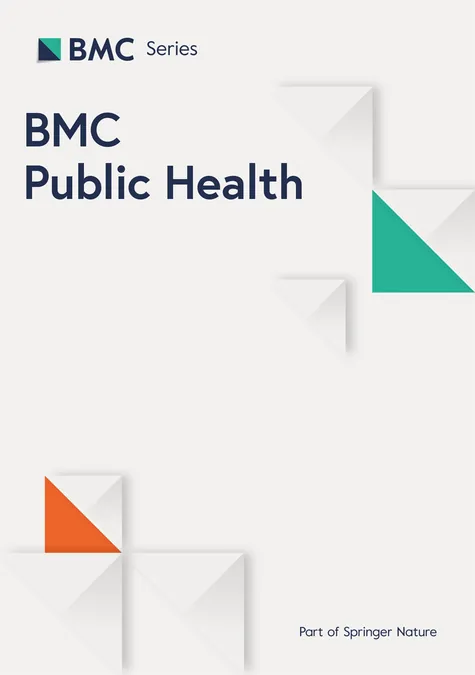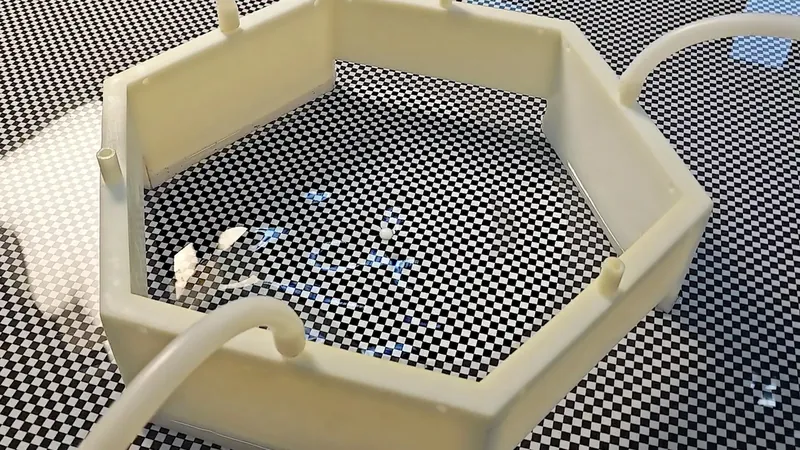
Unlocking Parental Confidence: The Surprising Link Between Physical Activity and Parenting Skills
2025-05-07
Author: Wei Ling
The Hidden Struggles of Parenting and Stress
Parenting is a whirlwind of joy and challenges, particularly for those with young children. The daily demands can elevate stress levels, often pushing parents towards unhealthy coping mechanisms. Instead of engaging in activities that promote well-being, many turn to sedentarism—like screen time or poor dietary habits—contributing to long-term health risks.
A New Approach: Active Parents, Confident Parents?
Amidst the chaos, regular physical activity emerges not just as a stress-reliever but potentially as a catalyst for parenting confidence. This fascinating link suggests that parents who prioritize their fitness may feel more empowered in their parenting roles. Research shows that confidence—and its relationship with lower stress levels and overall wellness—can lead to better parenting practices.
What Drives Parenting Confidence?
Parenting confidence can be influenced by various factors, including a parent's age, education, and prior experiences. Interestingly, while existing studies largely focus on mothers, there's scant research on how fathers find their footing in parenting. The unique dynamics within the family also contribute to parental confidence, with higher family functioning correlating with increased confidence.
Bridging the Gap: The Let’s Grow Study
To explore these dynamics, researchers conducted the Let’s Grow study, a randomized trial designed to boost physical activity among parents of toddlers in Australia. By analyzing device-assessed physical activity alongside parenting confidence assessments, they sought to uncover the connections—and any differences between mothers and fathers.
Key Findings: A Mixed Bag for Moms and Dads
Results showed that mothers generally engaged less in physical activity than fathers. However, for mothers, self-reported activity was positively linked to both general and physical activity-specific confidence. While the research revealed no significant correlations for fathers, there was a hint that their physical activity might be tied to their self-efficacy, suggesting an intriguing difference in how the two genders experience physical activity's impact.
Underreporting Activity: A Mother's Dilemma?
Despite appearing more active based on device data, mothers often underestimate their physical engagement, mistaking incidental activities as mere caregiving rather than legitimate exercise. This discrepancy raises questions about how mothers view their roles and the activities they engage in, highlighting the nuances in measuring physical fitness and its psychological benefits.
The Role of Household Dynamics
The study illustrated how traditional household roles might affect the confidence levels of both parents. Fathers often embody a supportive role within the family structure, which could explain their lower scores in self-management and personal agency compared to mothers. However, as fathers embrace physical activity, it may enhance their confidence in parenting, suggesting that every little bit of fitness counts.
Why This Research Matters
This study not only sheds light on the dual relationship between physical activity and parenting confidence but also emphasizes the need for further exploration—especially of fathers’ roles and perspectives. As society evolves, understanding how both parents can be empowered through activity could lead to healthier families and stronger parental bonds.
Future Directions: A Call to Action
To create lasting change, future research should focus on promoting physical activity among parents, paving the way for more confident and capable caregivers. This is especially relevant for mothers who juggle numerous responsibilities. By embracing fitness, parents not only improve their own well-being; they also set a powerful example for their children, fostering a culture of health and confidence for generations to come.



 Brasil (PT)
Brasil (PT)
 Canada (EN)
Canada (EN)
 Chile (ES)
Chile (ES)
 Česko (CS)
Česko (CS)
 대한민국 (KO)
대한민국 (KO)
 España (ES)
España (ES)
 France (FR)
France (FR)
 Hong Kong (EN)
Hong Kong (EN)
 Italia (IT)
Italia (IT)
 日本 (JA)
日本 (JA)
 Magyarország (HU)
Magyarország (HU)
 Norge (NO)
Norge (NO)
 Polska (PL)
Polska (PL)
 Schweiz (DE)
Schweiz (DE)
 Singapore (EN)
Singapore (EN)
 Sverige (SV)
Sverige (SV)
 Suomi (FI)
Suomi (FI)
 Türkiye (TR)
Türkiye (TR)
 الإمارات العربية المتحدة (AR)
الإمارات العربية المتحدة (AR)